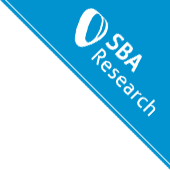The 4th Workshop on Recent Advances in Cyber Situational Awareness on Military Operations
to be held in the conjunction with the 18
th
International Conference on Availability, Reliability and Security
(ARES 2023 –
http://www.ares-conference.eu
)
August 29 – September 01, 2023
Information and Communications Technologies (ICT) are the backbone of the global economic growth and prosperity for society. They are a critical resource on which all economic sectors rely on. This situation has empowered the implementation of strategies, policies and regulations aimed at protecting the cyber assets and digital marketplaces, safeguarding at the same time the fundamental rights of citizens, such as privacy or data protection.
Cyber Situational Awareness (CSA), a dual-use area of technology development, enabled by mission-centric reasoning and knowledge acquisition approaches, provides a clear understanding of the current state of the planned/ongoing missions, thus inferring and anticipating future changes and inferring risks that may compromise related actuation domains (virtual-to-live). This involves the orchestration of a plethora of information processing actions. Among them, it can be cited: identification of key cyber terrain (KCT), dynamic risk assessment/management, incident response or threat analysis to name only a few. The proficiency in conducting mission-centric situational awareness poses a new nuance in the emergent digital landscape, since the capabilities for acquiring contextual information of the protected domain (e.g., disruptive monitoring features, complex event correlation, smart decision-making, etc.) are to be significantly enhanced to keep pace with an evolving digital transformation. Suitable CSA solutions shall also address cross-cutting barriers, comprising social, economic, industrial or regulatory/standardization challenges, which might lead to particularly breakthrough contributions in topics such as education and training (e.g. Cyber Ranges), including convergence with other related research and technology fields e.g. evidence notification, visualisation through Common Operational Picture (COP), and so on.
When building CSA, a mission-oriented dimension seeks to ensure effective resource employment while adapting to changes in each situation. The focus is to address configurable information management solutions in cyberspace concerning mission plans (assets, capabilities, dependencies, alternatives, goals, tasks, priorities, etc.) including enabling techniques. They are expected to shed some light, for instance, on performance improvements to cyber defence solutions, such as management dashboards in a security operation centre (or similar organisations), complemented with decision-making techniques to achieve resilience on information infrastructures, computer networks, data, and signals. These aspects will develop into innovative approaches, challenges, and opportunities to promote advanced situational awareness and capabilities.
The aim the CSA 2023 Workshop is to gather contributions of leading-edge researchers from academia and industry, and to provide a forum of discussion about latest research trends in the rapidly developed field of cyber security technologies with the goal of supporting the development of state-of-the-art CSA in support of military operations, and therefore providing a valuable information venue to researchers as well as practitioners. Manuscripts regarding novel approaches, architectures, implementations, on-going projects, and experiences are encouraged. These may cover all necessary aspects of this research field, including cyber defence, communications, electronics, situational awareness, multisensor data fusion, networking, command and control, decision-making, etc.
Topics of interest include, but are not limited to
Artificial Intelligence on military operations on the cyberspace
Attestation, evidences and distributed trust
Automated response
Big data on cyber situational awareness
Command and Control systems
Cyber Threat Intelligence management
Cyber risk Identification and Assessment
Education and Training
Evidence notification and Common Operational Picture
Gamification and Cyber ranges
Incident modeling and simulation
Incident response, reasoning and decision-making
Key Cyber Terrain identification and assessment
Mission planning
Mission assessment and management
Resilience and recovery
Secure communications
Quantum Safe Technologies
Situation understanding of complex information environments
Visual analytics and presentation techniques
Zero Trust and data-centric security
Important Dates
| Submission Deadline | May 31, 2023 |
| Author Notification | June 14, 2023 |
| Proceedings Version | June 28, 2023 |
| ARES EU Symposium | August 29, 2023 |
| Conference | August 29 – September 01, 2023 |
Workshop Chairs
Jorge Maestre Vidal
Indra, Spain
jmaestre@indra.es
Marco Antonio Sotelo Monge
Indra, Spain
masotelo@indra.es
Marta Irene García Cid
Indra, Spain
migarcia@indra.es
Salvador Llopis Sanchez
Universitat Politecnica de Valencia, Spain
salllosa@masters.upv.es
Gregorio Martínez Perez
Universidad de Murcia, Spain
gregorio@um.es
PROGRAM COMMITTEE
Sebastián Laiseca Segura, Indra, Spain
Marco Manso, Particle Summary, Portugal
Jan Willemson, Cybernetica, Estonia.
Andreas Kaiser, Rohde & Schwarz, Germany
Victor Villagrá González, Universidad Politécnica de Madrid, Spain
Joaquin Garcia-Alfaro, Institut Mines-Telecom, Telecom SudParis, France
Alberto Huertas Celdran, Waterford Institute of Technology, Ireland
Patricia Arias Cabarcos, Karlsruhe Institute of Technology, Germany
Cataldo Basile, Politecnico di Torino, Italy
David Sandoval Rodriguez-Bermejo, Tarlogic, Spain
Roumen Daton Medenou, Indra, Digital Labs, Spain
Miguel Páramo Castrillo, Indra, Digital Labs, Spain
Félix López Mármol, Universidad de Murcia, Spain
Manuel Gil Pérez, Universidad de Murcia, Spain
Mauro Conti, University of Padua, Italy
Nikolai Stoianov, Bulgarian Defence Institute, Bulgaria
Georgios Kambourakis, University of the Aegean, Greece
Pierangela Samarati, Università degli Studi di Milano, Italy
Submission Guidelines
The submission guidelines valid for the workshop are the same as for the ARES conference. They can be found at https://www.ares-conference.eu/conference/submission/ .



